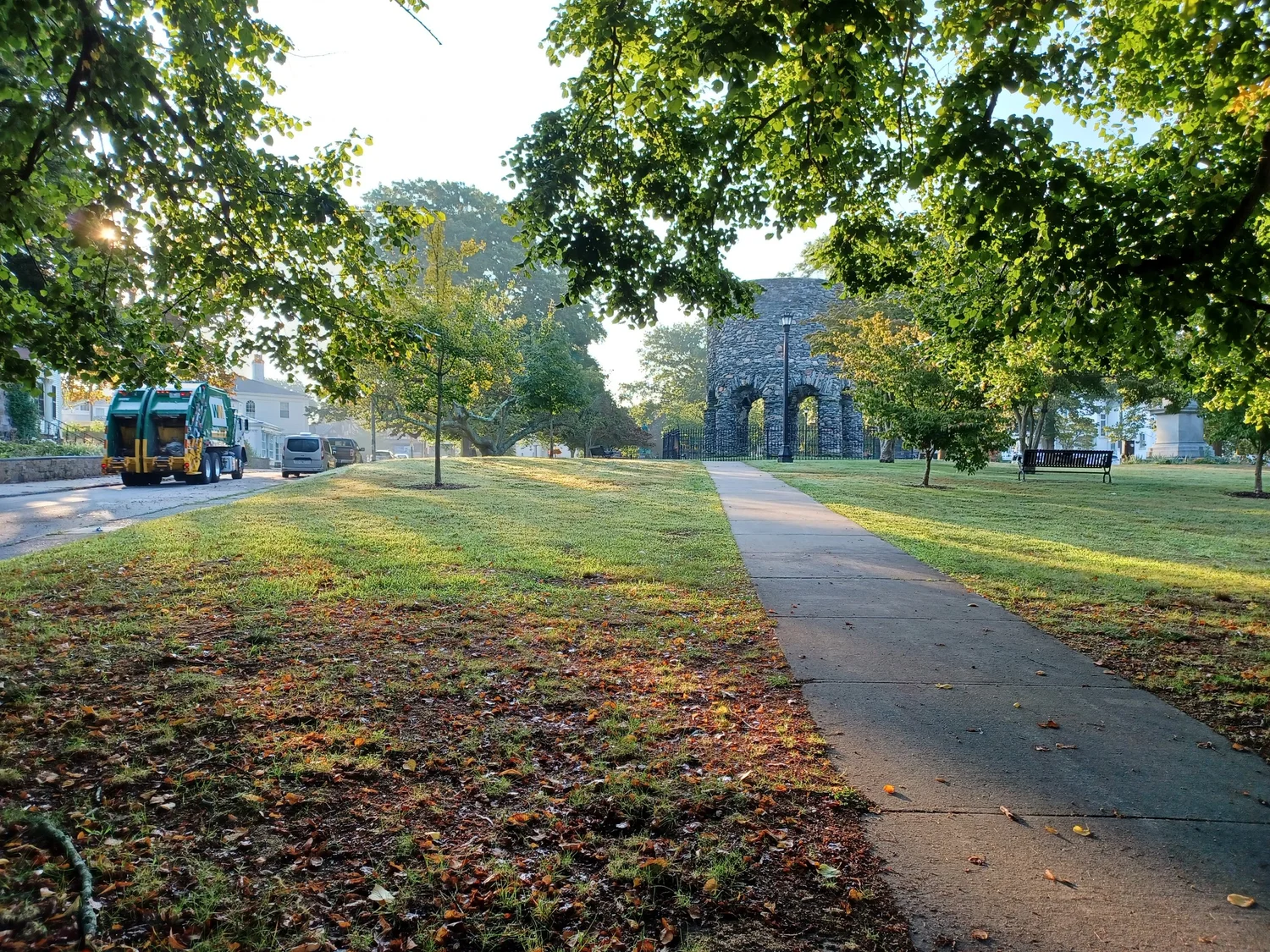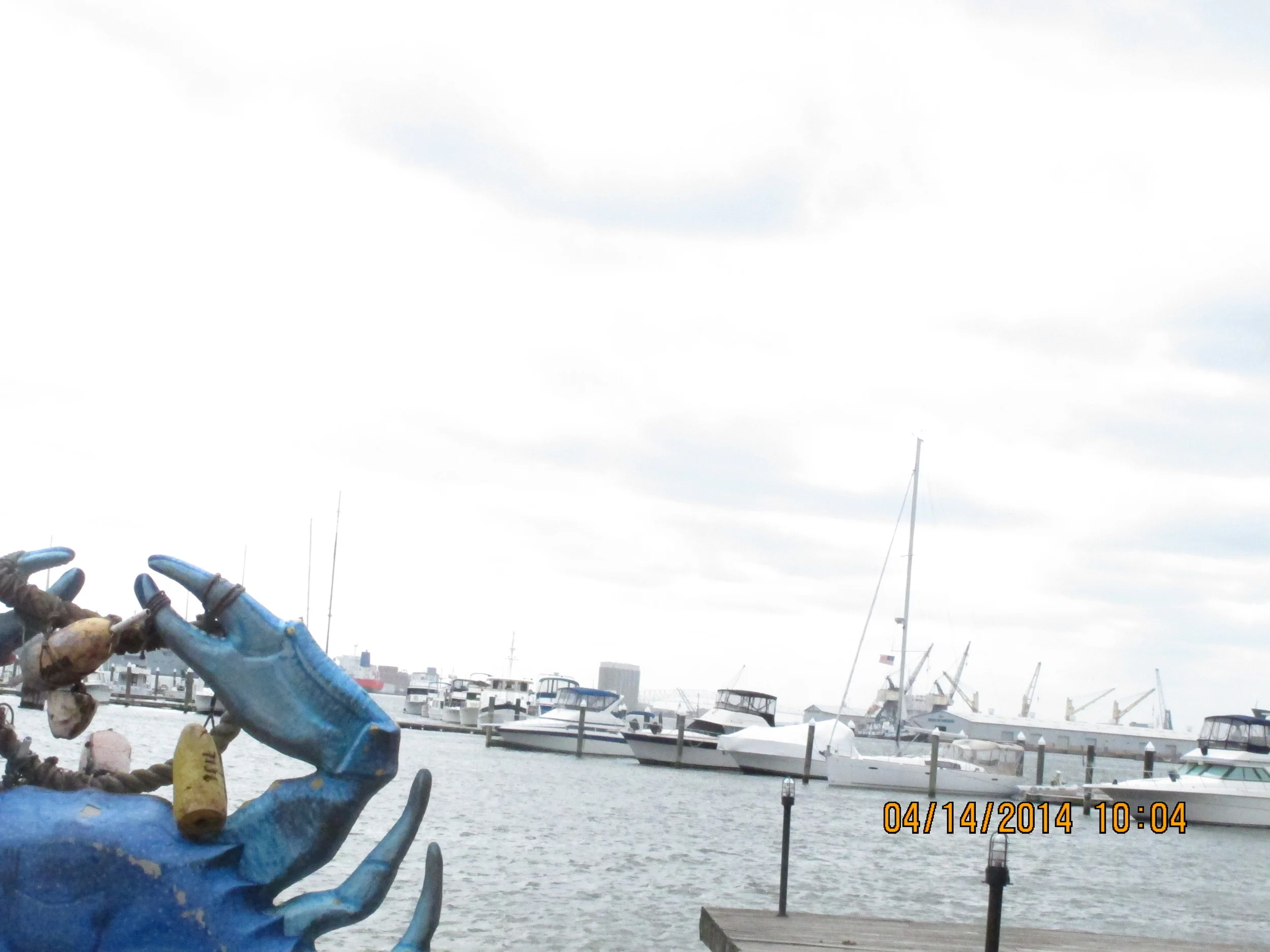After the Tap, Admit and Adapt
/Don’t envy me my acrobatic skill, but since an early age I’ve managed to carry more than one conflicting thought in my head at all times. These opposing ideas resolve when I focus, and that track record perhaps led me to want to work in helping groups harmonize competing claims amid climate stress. And they swirl in my head (and outside it) everywhere these days.
To illustrate: on a lucky two-week stretch of vacation along Rhode Island’s oceanfront this summer, I’d work out in the mornings by running along low stone walls past cliffs to the coast. I’d think: This place will inspire people for centuries. And an SUV would bellow past, and I’d think: This can’t last another decade.
The path we face contains the road between those realities. People, even when we rely on code to find our way and categorize our memories, rush to the horizons and coves that my biophilic friend Bill Browning calls “prospect and refuge.” And people will not prosper for long in the triple-wide cars or the quadruple-width houses on which I and other fortunate ones have grown up. The storms and fires and heat unspooling from the overcarbonized atmosphere guarantee a redesign covering the whole world. Even if you wanted to set up a fortress where you could order all your Pinots and chia seeds and stream all your inputs into the palm of your hand, the cost of transportation and insurance and human suffering would soar too high and would likely make you feel yucky.
And don’t take my word on that: consider the rolled-up newspaper that greeted me at the end of one of my more humid morning workouts.
So what to do? An instant switch looks unfair. People drive the cars they drive because they think they need them, and real estate occupies its reality thanks to a mix of design ideals, controlled-market enthusiasm, and sometimes dubious zoning laws. You can’t and shouldn’t level a vacation town and gin up a commune, and you shouldn’t begrudge people their time near the ocean or in the mountains, away from the concrete mazes we mostly know. The overriding task collapses to a word that’s coating investment and policy decisions as fully as foamy saltwater coats the shore: adapt.
Adaptation means, for government budgets, investing billions in capital to help people move when their homes no longer stand above water or can no longer stand heat. It also means reorienting trade routes, and fuels, and trip lengths, and ideas about personal prerogative, to a reality where everything is aflame or flooding or might be nearing one of those extremes.
Adaptation also means training mental muscles to sleep well at night knowing that knowledge and context change both gradually and suddenly. I’ve gotten used to the tap, in my vacation time and my parenting time and my organizing time. You likely have too. You tap to correct your way on a drive, learn where you can find coffee, grok what world leaders have decided to do about a given conflict. But codes only yield facts and imminent steps. Adapting the way you live, invest, vote and argue means admitting that sometimes you need to explore strange physical and psychological places, step by step. Doing that shows you where both the crevasses and the anchors sit.
And last, perhaps it means a call to ease off lightswitch narratives in which things are OK or not OK. A year ago, I read the Inflation Reduction Act as it became law and whistling air filled my chest. This year, I read about how local landowners’ misgivings about projects and a lack of thorough dialogue stalls deployment of clean energy projects, and a rock plunged in my stomach. But if you’re adapting, then you can balance your proverbial feet on the law’s ambition and the polity’s ambivalence. You can commit to thinking up ways to discuss, advocate, invest in and redesign solutions that bring carbon pollution down without bringing mistrust to new heights. You want a sense of peace, you lose it - and as you adapt, you do work to define the addressable problem.
And you recalibrate your demands, perhaps, of public servants. Demanding that the American president “get climate done” carries the same weight as demanding that coal mining continue as it did before renewable energies gained a cost advantage. Public servants should assess accurately, address honestly, and adapt constantly. We’ll have to carry conflicting costs in our heads as we invest and work and vote to demand that sort of attention from politicians. But here’s a secret - anyone can carry thoughts that way. If you couldn’t, few would feel romance in looking at an ocean that can swallow them.
The ocean needn’t swallow anyone who has a guardian or who knows how to swim. Our loneliness, brittle debate, and scorched climate needn’t swallow anyone either. The carbon weight bearing down on the town I love has to change, like the ocean does.
That means any number of conflicting impulses and thoughts to carry at once into the future. I’m wishing us all courage, patience and glimpses of beauty along the way.




